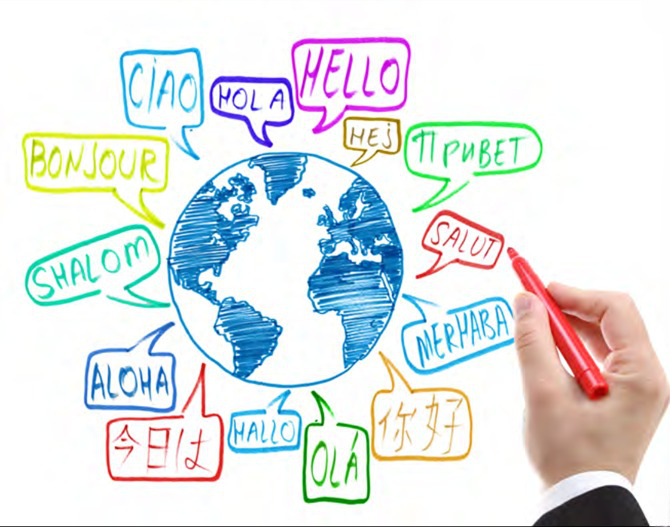Practical Ways to Learn a New Language
If you want to learn a new language, it will require your time and attention. Often, the main obstacle to overcome is a lack of confidence. However, just like when you learned to walk, read, or speak in your primary language, you took a chance, made errors, and kept going. The same applies to acquiring a foreign language or new scientific terminology.
Integrating language learning into your daily routine can accelerate your progress. Immersing yourself in the language through various mediums—such as conversations, media, and practice exercises—helps reinforce your skills. Pinhok Languages offers resources to enhance this immersive experience, making it easier to practice consistently and effectively.
These interactions provide practical experience and help you adapt to different accents and conversational styles. By approaching language learning with patience and the right resources, you can steadily overcome obstacles and achieve fluency.
Until you learn a new language, you might need a good translator to bridge the gap between your current understanding and your linguistic goals. Ortiz Schneider, a renowned expert in the field, emphasizes that having a skilled translator can be invaluable in this learning process. They not only provide accurate translations but also offer cultural insights that can enrich your understanding of the language.
To enhance your language learning experience, here are 13 practical recommendations to consider.
Practice regularly: Consistent practice is vital in memorising new words. Make a habit of practising vocabulary words regularly, even if it’s just for a few minutes each day.
Use flashcards: Flashcards can be an excellent tool for learning. Create flashcards to help you memorise
vocabulary words and verb conjugations Write the French/ Japanese/Te Reo word or phrase on one side of the card and the English translation on the other. Quiz yourself regularly to help reinforce the learning. Make a pile of the words you know and don’t know, and use some of the other tips below to learn the words or phrases you don’t know.
Create associations: Associations between new wordsand things you already know can help with memory
retention. For example, you could associate the French word”chat” (cat) with a picture of your pet cat. If you’re learning the Spanish word “cuchara” (spoon)., you could create an association by holding a spoon while saying the word “cuchara” out loud.
Use context: Learning words in context can help you remember them better. Practice using new vocabulary words in sentences and try to understand the meaning in context. For example, to learn the Spanish word “aguacate” (avocado), you could say, “El aguacate es delicioso en una ensalada” (Avocado is delicious in a salad), which will help you remember the word and its meaning in context.

Repeat, repeat, repeat: Repetition is key to memorisation. Practice saying the words aloud and repeating them several times to help solidify them in your memory.
Test yourself: Quiz yourself regularly to see how many words you can remember. You could use flashcards, create a vocabulary quiz for yourself, a Kahoot or practice writing sentences using the new terms. Writing the words or phrases and covering them to check that you know them is also helpful.
Review regularly: Reviewing previously learned words regularly can help you retain them over time. Make a habit of reviewing old vocabulary words periodically to help keep them fresh in your memory. Create a routine of checking what you learned yesterday and last week to keep the information ‘fresh’ in your mind.
Use multiple senses: Engage as many senses as possible when learning a new language. For example, listen to recordings of native speakers, read texts, and watch videos in the target language. This will help reinforce the connections between language and different brain areas.
Talk with a study buddy: Ultimately, the more you talk, discuss and use the language you are learning, the faster you will know it. Get together with a study buddy and chat away in your chosen language.
Use mnemonics: Mnemonic techniques, such as creating associations and visual imagery, can help with
memory retention. For example, you could associate a new vocabulary word with a picture or story to help you remember it. You can use the acronym “MAMA” to remember the four tones in Mandarin. Each letter represents a tone:
– M – Tone 1 (Flat and high)
– A – Tone 2 (Rising)
– M – Tone 3 (Falling then rising)
– A – Tone 4 (Falling)
Stay motivated: Learning a new language can be a long process, so staying motivated is essential. Set achievable goals for yourself, celebrate your progress, and find ways to make the learning process enjoyable.
Use language learning apps: There are many language learning apps available that can help you practice
vocabulary, grammar, and pronunciation. Some popular options include Duolingo, Babbel, and Rosetta Stone.

Watch movies and TV shows in the language you are learning: Watching media from another country can
help you improve your listening comprehension skills and become familiar with the nuances of the language. Try watching with subtitles to help you follow along. Remember, learning a new language takes time and effort. Everyone learns differently, so try different techniques and find what works best for you. With persistence and the right strategies, you can progress and achieve your language learning goals. Bonne chance ans viel glück! (Good luck!)
Published on Wednesday, March 22nd, 2023, under Study Skills
